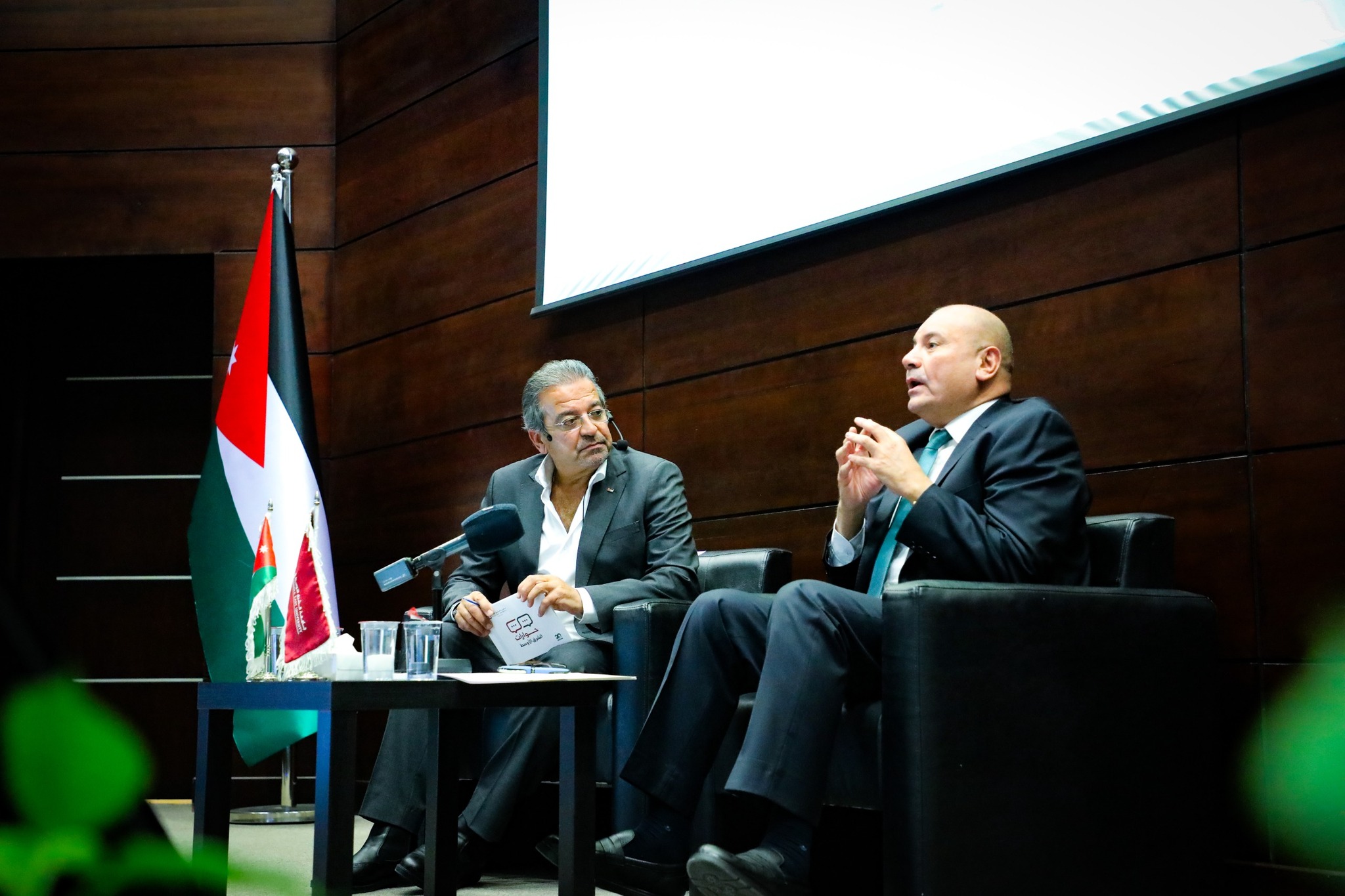
His Excellency Eng. Abdul Munim Al-Awdat, the Minister of Political and Parliamentary Affairs, affirmed that the Jordanian state relies on the awareness of its youth and their capacity to be the architects of the future and ambassadors for the values of dialogue, moderation, and responsibility within their universities and communities. He stressed that universities must remain beacons of knowledge, thought, and constructive debate, and that a difference of opinion should serve as a gateway to responsible dialogue that reflects the youth’s consciousness and their national allegiance.
These remarks were delivered during his meeting with a number of students from the university at the “Middle East Dialogues” event, which was held under the title “Political Parties and Youth – A Partnership for Change”. The session was moderated by the media figure Prof. Hani Al-Badri and attended by the Chairman of the University’s Board of Trustees, Dr. Yacoub Nasereddin; the University President, Professor Salam Al-Mahadin; Member of Parliament Prof. Tamara Nasereddin; and members of the university’s academic and administrative staff.
Minister Al-Awdat added that universities are a crucial platform that contributes to refining students’ identities by equipping them with the necessary skills and knowledge. Furthermore, their role in hosting numerous interactive activities and dialogue sessions in which students can participate positively impacts their character development and qualifies them to play an active and influential role in public life. He asserted that investing in the awareness of youth and their belief in the democratic process is the guarantee for the sustainability of political reform and the entrenchment of citizenship values, which form a solid foundation for building a modern state capable of confronting challenges with confidence and resilience.
Al-Awdat pointed out that the comprehensive modernisation project led by His Majesty King Abdullah II bin Al Hussein constitutes an integrated national framework for enhancing political participation and youth empowerment. He noted that political modernisation was introduced to grant young people a broader space for structured, programmatic political participation and expression, while also reinforcing the concept of the Jordanian national identity, which unites all Jordanians on the principles of belonging, loyalty, and the rule of law—the fundamental pillar upon which the state is built.
Addressing the role of media in building genuine awareness among young people, Al-Awdat highlighted that the role of modern media is vital in boosting political and partisan engagement amidst the digital media revolution. This has made youth more capable of expressing their opinions and aspirations regarding various national issues. He emphasised the necessity for young people to be fully conscious of surrounding challenges and attempts to sow doubt against the nation in pursuit of preserving the social fabric and the national identity.
In his remarks, Dr. Yacoub Nasereddin, Chairman of the Board of Trustees, stated that the outputs of the Royal Committee to Modernise the Political System, which received sublime royal patronage and follow-up, represented a fundamental shift in Jordanian political life. He noted that approximately 89% of current Members of Parliament are affiliated with political parties, a clear indicator of the success of the nascent partisan experiment.
He observed that the three tracks of modernisation—political, economic, and administrative—are strategically harmonised to build a modern, renewed Jordan capable of accommodating the demands of development and transformation. He added that the political modernisation project constitutes an integrated strategic royal vision for the second centenary of the Jordanian state, being one of the core modernisation tracks sought by His Majesty King Abdullah II bin Al Hussein. He noted that His Majesty has accorded this pioneering national project exceptional attention and direct oversight since the moment the Royal Committee was formed, which necessitates protecting this landmark national experience from discouraging factors or attempts to discredit it.
The session concluded with an extensive dialogue between Minister Al-Awdat and the students, addressing youth issues, political participation, the concept of a programmatic party, and the prospects of democratic reform. The students articulated advanced critical perspectives and intellectual propositions, demonstrating a high level of national maturity and responsible political awareness.
